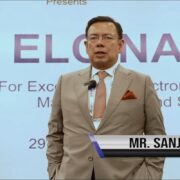The trial of Sam Bankman-Fried, the former CEO of the bankrupt cryptocurrency exchange FTX is on at a New York court these days on charges of fraud. Prosecutors allege that Bankman-Fried stole billions of dollars from customers and investors to “fund his lavish lifestyle and risky investments.”
Bankman-Fried’s lawyers deny the charges, arguing that he is a “gifted entrepreneur” who made some bad decisions. The trial is expected to last several weeks.
Who is Sam Bankman-Fried?
Bankman-Fried rose to fame in 2019 as the founder of FTX, which quickly became one of the largest cryptocurrency exchanges in the world. He became a well-known figure in Washington, DC, where he advocated for cryptocurrency regulation.
However, FTX collapsed in November 2022 after it was revealed that Bankman-Fried had used customer funds to fund risky investments in his personal companies. He was arrested in December 2022 and charged with fraud.
The trial is being closely watched by the cryptocurrency industry, as it could have a significant impact on the regulation of digital assets. Bankman-Fried is one of the highest-profile figures to be charged with cryptocurrency fraud; a conviction, if it come to pass, could send a strong message to other players in the industry.
Donald Cressey’s “Fraud Triangle” framework
Bankman-Fried and FTX are just one example of how the rise of cryptocurrencies like Bitcoin and Ethereum, while creating vast opportunities for wealth creation and financial innovation, also created a breeding ground for fraudsters.
The likes of FTX and other fraud-accused firms such as Tether, Three Arrows Capital, TerraLuna, Celsius, FTX, and Terraform show that, in the complex and often opaque world of cryptocurrencies and digital finance, the infamous ”fraud Triangle”, introduced by criminologist Donald Cressey way back in 1953, might become increasingly relevant to explain and predict rogue behaviors. This framework, traditionally used to analyze white-collar crime , involves three key factors that must be present for fraud to occur: motivation, opportunity, and rationalization.
Motivation: Greed, revenge, power. The dark desires that fuel fraud.
Opportunity: Weak controls, lax oversight, collusion. The openings that fraudsters exploit.
Rationalization: Self-justification, entitlement. The lies fraudsters tell themselves to sleep soundly at night.
ALL three elements of the fraud triangle must be present in order for fraud to occur.
How FTX and Bankman-Fried fit the Fraud Triangle
In FTX’s case, Bankman-Fried may have been motivated to commit fraud by a desire for personal gain. He is accused of using customer funds to fund risky investments in his personal companies. If these investments had been successful, he would have made a lot of money. However, the investments failed, and he lost billions of dollars in customer funds.
Bankman-Fried had the opportunity to commit fraud because of his position as CEO of FTX. He had control over customer funds and was able to use them for his own purposes without being detected. The lack of regulation in the cryptocurrency industry also made it easier for him to commit fraud.
Bankman-Fried may have rationalized his actions by believing that he was acting in the best interests of FTX. He may have believed that the risky investments he was making would ultimately benefit the company. However, he did not disclose these investments to customers or shareholders, and he used customer funds without their permission.
Overall, FTX fits the Fraud Triangle because all three factors were present: motivation, opportunity, and rationalization. Bankman-Fried had the motivation to commit fraud (personal gain), the opportunity to commit fraud (his position as CEO of FTX), and he rationalized his actions by believing that he was acting in the best interests of the company.
It is important to note that Bankman-Fried has not been convicted of any crimes, and he is presumed innocent until proven guilty. However, the evidence presented at his trial suggests that he may have committed fraud.
Crypto players facing similar charges exhibit a behavioural pattern
FTX apart, the reported charges against, investigations or arrests involving Three Arrows Capital, TerraLuna, Celsius, and Terraform appear to fit the Fraud Triangle nicely.
They were motivated by greed, power, and arrogance. They had the opportunity to commit fraud because of the lack of regulation in the cryptocurrency industry, the complexity of their products and services, and their opaque business practices. They rationalized their actions by believing that they were acting in the best interests of investors, that they were smarter than everyone else, and that they deserved to be rich and powerful.
As the crypto universe soars, investors and regulators must unite to pierce the veils of motivation, opportunity, and rationalization, illuminating the fraud triangle that casts a shadow on this nascent industry. Through this lens, we can chart the rise and fall of cryptocurrencies, shaping the regulations we need to ensure the promise of blockchain technology is realized, while mitigating the risks of fraud and other nefarious shenanigans.







